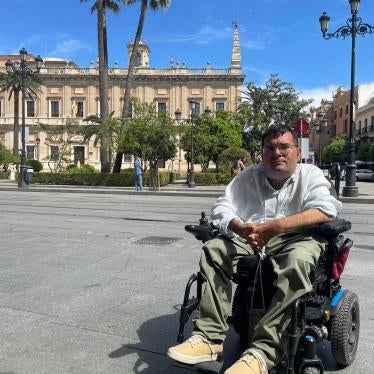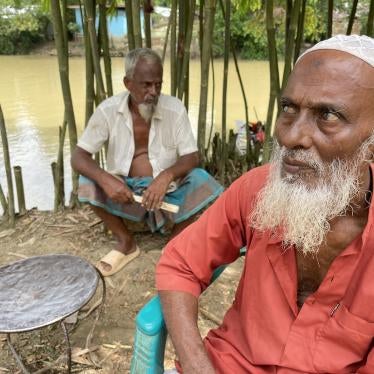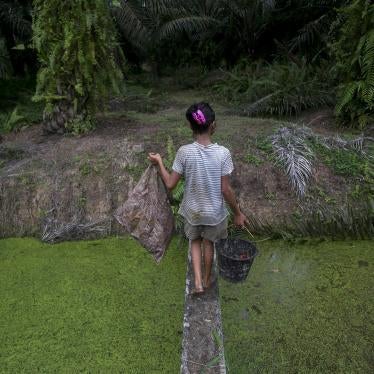At the end of June, Spain experienced its first heatwave of the year, sounding the alarm for what many scientists predicted could be a record-breaking summer. In July alone, Spain had three more heatwaves, with temperatures well above a scorching 40 degrees Celsius. It’s looking like another long, hot summer, and people with disabilities will again face particular challenges.
Unfortunately, heatwaves are here to stay and will increase in intensity unless global greenhouse gas emissions are drastically reduced. Temperatures have continued to rise in Spain, breaking record after record, with summers getting hotter and hotter every year.
Not everyone can cope well with this type of extreme weather. In fact, while doing research on the rights of people with disabilities for Human Rights Watch, I have witnessed how some people with disabilities significantly struggle in the heat, including because of difficulties regulating their body temperature. Many also told me that heat affected their mental health, and that they had palpable feelings of anxiety and depression. They dreaded having to stay home for prolonged periods to avoid the heat, which exacerbates feelings of loneliness and social isolation.
And yet, as Spain created plans to respond to the heatwaves, the planners have left out the rights and needs of people with disabilities.
Having to stay at home during a heatwave can be especially difficult for people experiencing economic marginalization, whose homes may not have been designed for heat efficiency and who can’t pay for air conditioning—including many people with disabilities. They also may live in areas where they are less likely to find parks or other sources of shade.
Spain and Andalusia have attempted to answer these and other questions by developing heatwave action plans. These plans detail activities that the government as well as health and social services should carry out before and during a heatwave, from informing the public about options for relief and contacting at-risk people to let them know how to get out of the heat. However, previous plans did not adequately take people with disabilities into account. In fact, people said that heat-related emergency information wasn’t even provided in accessible formats. This kind of exclusionary policy design is leaving out some of the people who may need help the most.
All these challenges around the current heatwaves underscore how the climate crisis is also a human rights crisis due to insufficient government actions worldwide to reduce greenhouse gas emissions and adapt to climate change. Heatwaves threaten people’s health, even their lives, and more so if they have a disability or are economically marginalized. They also exacerbate existing inequalities.
However, there is still hope. In Spain and around the world, policymakers, researchers, and activists have developed innovative ways to cope with and reduce the heat. In 2020, Andalusia passed a law that aims to use bioclimatization techniques in school buildings, such as adding vegetation and ventilation while using clean energy, following a local movement to better protect children from the heat. In 2021, the European Union agreed to fund an initiative to provide solar panels to low-income neighborhoods in Seville, combining efforts to shift to renewable energies with those to support people who disproportionately experience economic marginalization.
Such actions can help fulfill international human rights obligations like those under the UN Convention on the Rights of Persons with Disabilities, which Spain ratified in 2007 and which requires states to protect people with disabilities during natural disasters. This treaty and other human rights treaties apply to the Spanish government regardless of what party or parties are in power.
To improve the inclusiveness of heatwave responses, whichever government forms following the national election should meaningfully engage and involve people with disabilities in developing the next national and regional annual climate action plans. They should also take specific steps to reduce fundamental inequalities to better protect people with disabilities and people experiencing economic marginalization during heatwaves.
They should reach out to people with disabilities and inform them of heat-related risks and provide support services. They should also provide people experiencing economic marginalization with access to clean energy, including through help with electricity bills, among other actions to ensure they don’t disproportionately suffer.
Increasingly hot and unbearable summers are a problem for everyone in Spain, so climate resilience and heat mitigation strategies should include everyone’s needs and rights. Climate responses should be human rights responses. The government should actively reach out and work to include the rights and needs of people with disabilities, including those who experience economic marginalization, and to address the inequalities that keep them marginalized.









